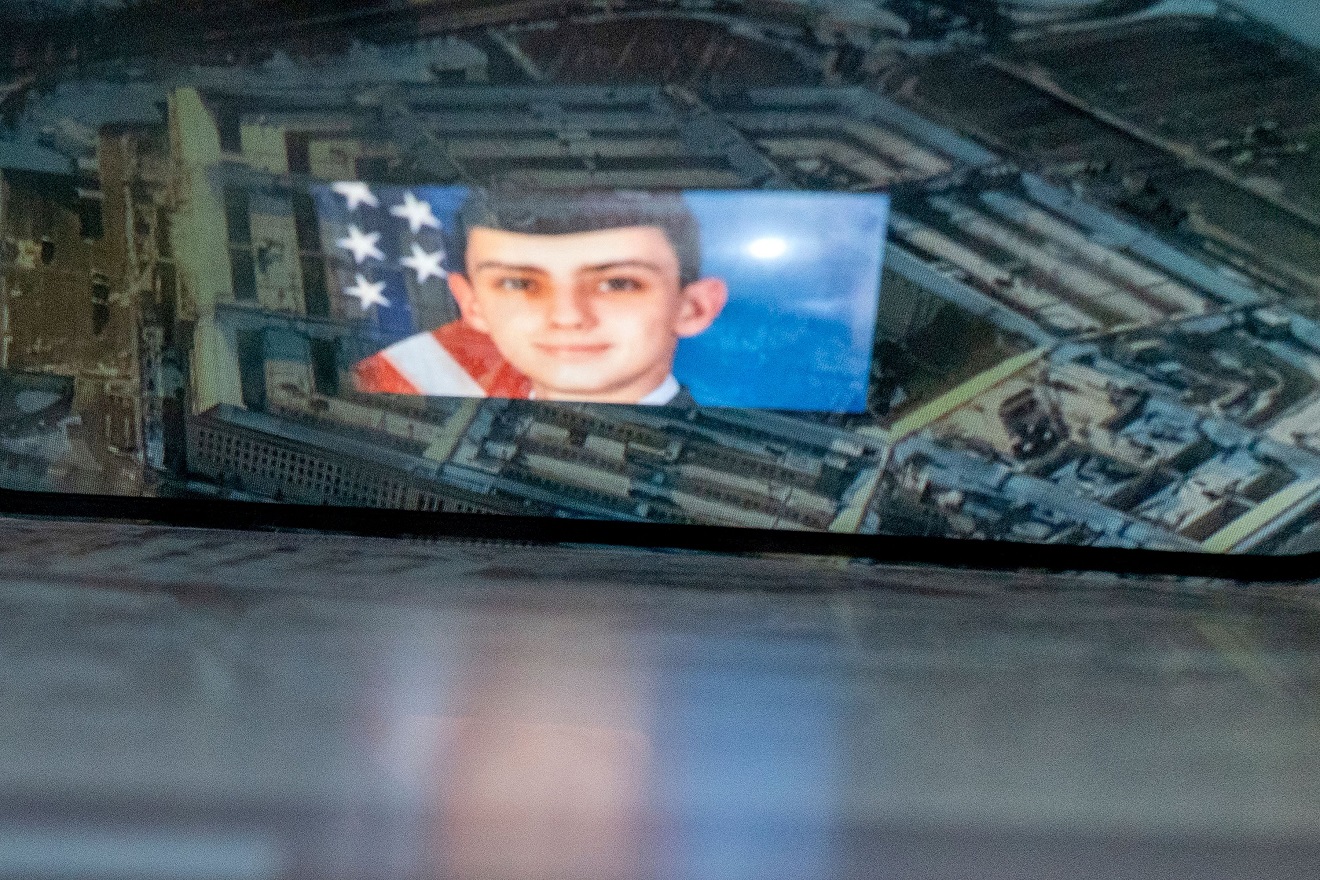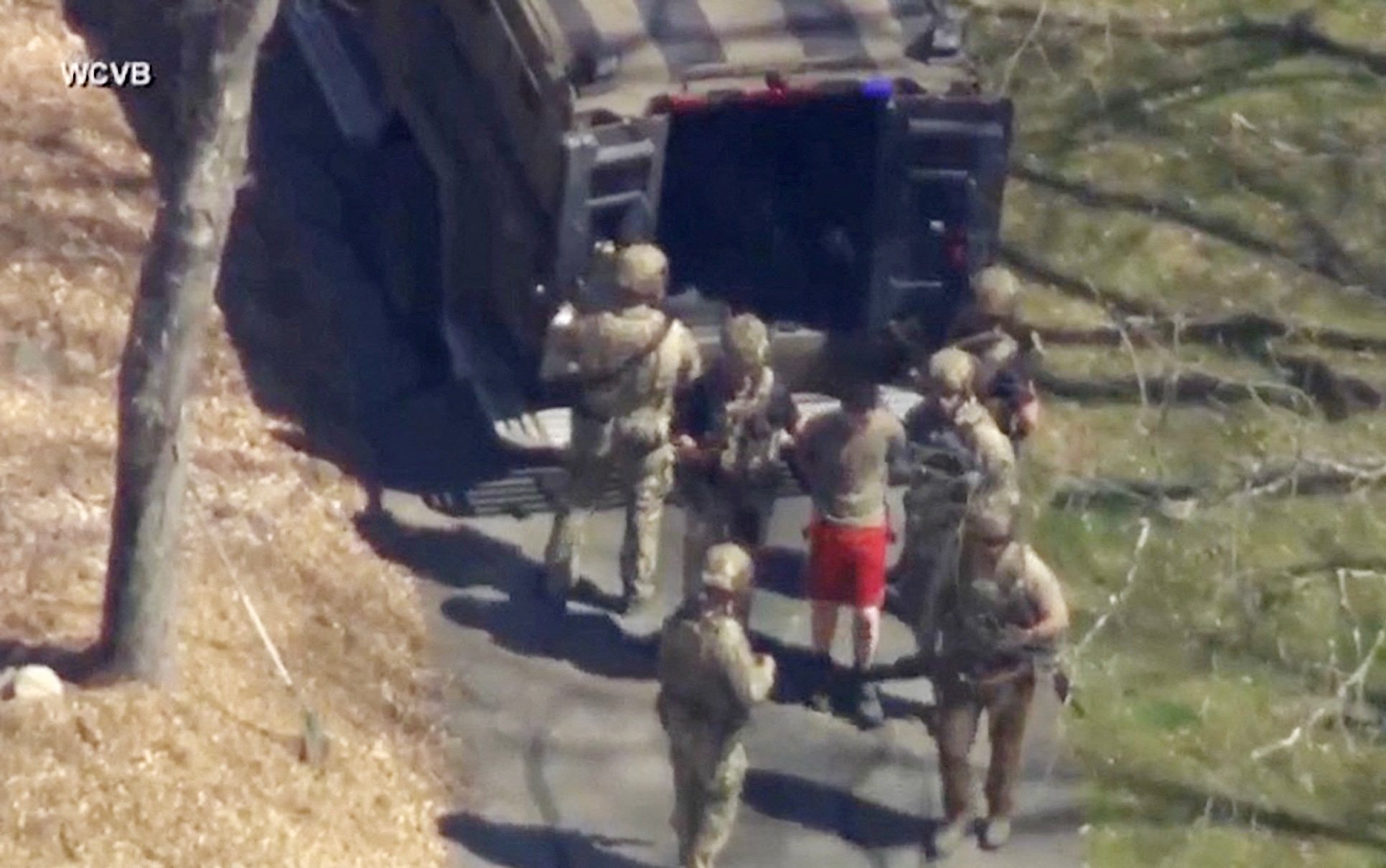
Jack Teixeira, 21 years old, clean-shaven with buzz-cut hair and proudly uniformed, is the face of the United States’ newest security threat, one it is struggling to resolve.
The formidable US counter-intelligence infrastructure is adept at finding spies and rooting out whistleblowers. Teixeira, charged a week ago on two counts of the Espionage Act, is neither spy nor whistleblower.
His family history is the epitome of conservative patriotism. His stepfather served in the same unit, the 102nd intelligence wing of the Massachusetts air national guard, and his mother, who worked for years for veterans’ charities, celebrated the fact that Teixeira was following the same path. The young recruit was an observant Catholic, who would pray with other members of his online chat group.
But Teixeira’s outlook had taken the same dramatic turn as much of American conservatism, becoming conspiratorial and distrustful of the very institutions earlier generations revered. Friends quoted in the Washington Post said he had come to regret joining up, as his view of the military dimmed.
His motive for allegedly sharing hundreds of top secret documents among the 20 or so young men and teenage boys on the Discord gaming server he moderated, at least as he explained it to them, was to alert them to shadowy forces driving world events.
He reportedly posted the documents, photographed unfolded and laid on his family’s kitchen counter alongside glue and nail clippers, and presented without commentary or any apparent underlying logic. It seems to have been a way to cement his status as the leader of the group, a man of mystery and action. It was as inchoate as the video he reportedly shared with his group, Thug Shaker Central (named in apparently ironic spirit after a variety of gay porn), in which Teixeira shouts anti-semitic and racist slurs then fires a rifle.
This was the young man, clearly still living out his adolescence, who was given one of the nation’s highest security clearances: "top secret/sensitive compartmented information" (TS/SCI), so that he could do his job maintaining the sealed infranet system at Otis air base on Cape Cod, through which the nation’s most closely guarded secrets flowed.
To get that level of clearance you must, in theory, be extensively vetted. The process takes months, as investigators trawl through your personal history and interview your friends and colleagues. But the standards for vetting differ across agencies, and those of the air national guard may not be on a par with the CIA, yet the staff at both see the same documents.
The other security arrangements at the Otis base also appear to have been lax. Teixeira is alleged to have first copied out text from secret documents, and then, beginning in January, printed them out and taken them home.
"The breakdown in physical security here appears stark and serious," national security, federal employment and security clearance specialist and lawyer Bradley Moss said.
"The after-action review will absolutely need to assess where the process broke down by which no-one noticed his removal of the records."
There is another problem with trying to filter out people like Teixeira: the elastic limits of first amendment free speech rights, in a country where what was once extreme is increasingly mainstream.

"That makes him an enemy to the Biden regime."
The Fox News talk show host Tucker Carlson defended Teixeira and complained the airman, arrested by armed FBI agents at his home and charged in a Boston court the next day, was being treated worse than Osama bin Laden, who was shot in the head by US special forces in his bedroom in 2011.
The new Republican right views the state as an enemy when it is being run by Democrats or moderate conservatives.
Part of the Trump legacy is a preference for foreign dictators over political opponents in a democratic system. So weeding out enemies of the state within the intelligence and military community risks angering an increasingly significant and vocal part of the political arena.
"It’s difficult to truly quantify the scope of the threat, and part of the problem is simply holding repugnant political views is not truly a security issue. It’s more of an HR issue," Moss said.
The vetting process was not "designed to flesh out the details of an individual’s personal political leanings".
"That’s deliberate: the government is largely forbidden from considering your political views in that context unless it implicates a separate concern [such as criminal conduct]."
The problem facing the vetters is magnified by the enormous scale of the numbers involved. According to the office of the director of national intelligence, there are more than 1.2 million government employees and contractors with access to top secret intelligence materials.
Former White House official and Just Security senior fellow Brianna Rosen said that was a result of the 9/11 attacks, where some of the intelligence failings that allowed the hijackers to succeed involved a failure to share intelligence with law enforcement agencies.
"It’s a double-edged sword because in one sense a lack of this kind of information sharing is, in part, what contributed to 9/11.
"As a result of all of these increased intelligence sharing programmes, you do have a situation where there is a vast amount of people that have access to sensitive information that they probably shouldn’t have access to, and that may not have been vetted as thoroughly as they should have been.
"It was really only a matter of time until something like this happened, which is why this is really a systemic problem that Congress and the Biden administration needs to address this more closely." — Guardian News and Media











